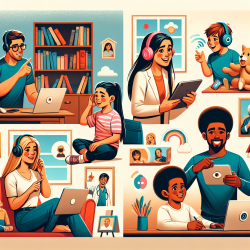The field of psychosocial oncology is rapidly evolving, with new research continually shaping how we understand and address the psychosocial needs of cancer patients. The 38th Annual Canadian Association of Psychosocial Oncology (CAPO) Conference, held in June 2023, provided a platform for presenting groundbreaking research aimed at optimizing outcomes for all cancer patients. This blog explores key insights from the conference and offers guidance on implementing these findings to enhance practice and encourage further research.
The Importance of Co-Design in Psychosocial Oncology
A central theme of the conference was the emphasis on co-designing psychosocial oncology interventions. Co-design involves collaborating with patients, caregivers, and healthcare providers to develop interventions that truly meet the needs of those affected by cancer. This approach ensures that interventions are not only evidence-based but also tailored to the unique experiences and preferences of patients.
PIVOT: A Novel Intervention for AYAs
One of the standout presentations at the conference was on PIVOT, a novel intervention designed to support adolescents and young adults (AYAs) with cancer. Developed by clinicians at the Tom Baker Cancer Centre, PIVOT addresses the psychosocial needs of AYAs aged 30-49 who face significant life changes due to cancer. The intervention is grounded in acceptance and commitment therapy (ACT) and supportive expressive therapy (SET) principles.
- Methodology: Participants engage in a six-week therapy group focusing on domains such as body image, relationships, and career.
- Results: High attendance rates and positive satisfaction ratings indicate that PIVOT is both acceptable and feasible for this demographic.
The success of PIVOT highlights the importance of developing age-specific interventions that consider the distinct challenges faced by AYAs. Future research should focus on refining this intervention and exploring its integration into standard care practices.
The Role of Digital Health in Cancer Care
The conference also underscored the growing role of digital health solutions in cancer care. Digital platforms offer innovative ways to deliver psychosocial support, particularly for under-represented groups. For instance, an online group psychotherapy intervention for AYAs demonstrated increased peer connection and self-expression among participants.
- Benefits: Digital interventions can increase accessibility and provide a safe space for patients to share experiences.
- Challenges: Preferences for delivery methods (in-person vs. virtual) vary among patients, indicating a need for flexible solutions.
This area presents rich opportunities for further research into optimizing digital health tools to enhance patient engagement and outcomes.
The Future of Psychosocial Oncology Research
The CAPO Conference highlighted several areas ripe for future exploration:
- Diversity and Inclusion: Research must continue to address barriers faced by under-represented groups in psychosocial oncology studies.
- Sustainability: Developing sustainable interventions that can be integrated into routine care is crucial for long-term impact.
- Cultural Competency: Interventions should be culturally sensitive to effectively meet the diverse needs of cancer patients.
The insights gained from this conference can guide practitioners in enhancing their skills and encourage researchers to pursue studies that address these critical areas.
Conclusion
The 38th CAPO Conference provided valuable insights into advancing psychosocial oncology through innovative research and co-design methodologies. By implementing these findings, practitioners can improve patient outcomes and contribute to a more inclusive and effective cancer care system. For those interested in delving deeper into this research, I encourage you to read the original paper: Abstract Proceedings of the 38th Annual Canadian Association of Psychosocial Oncology (CAPO) Conference, June 2023.










